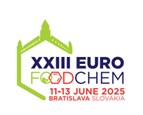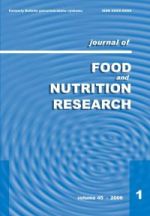Scientific journal
Journal of Food and Nutrition Research
Summary No. 3 / 2017
Viskupicova, J. – Maliar, T.
Rutin fatty acid esters: from synthesis to biological health effects and application
Journal of Food and Nutrition Research, 56, 2017, No. 3, s. 232-243
Jana Viskupicova, Institute of Experimental Pharmacology and Toxicology, Slovak Academy of Sciences, Dubravska cesta 9, 841 04 Bratislava, Slovakia; Department of Biotechnologies, Faculty of Natural Sciences, University of Ss. Cyril and Methodius, Nam. J. Herdu 2, 917 01 Trnava, Slovakia. Tel.: +421 232 295 710, e-mail: janaviskupicova@gmail.com
Received 13 February 2017; 1st revised 7 June 2017; accepted 12 June 2017; published online 12 September 2017
Summary: Flavonoids are promising compounds with a significant therapeutic potential. However, rutin efficiency after oral administration is limited due to its poor bioavailability. This paper presents perspectives of rutin fatty acid esters prepared by selective enzyme-mediated synthesis. The process is affected by several factors, such as acyl donor, acyl acceptor, ratios of reactants, solvent, temperature, reaction time and water content. Targeted products retain the antioxidant activity of the parental compound rutin in both hydrophilic and hydrophobic medium but, compared to rutin, the derivatives express increased antioxidant activity in lipophilic models, such as low density lipoprotein oxidation assay, beta-carotene linoleate system or Rancimat test. Moreover, rutin esters have enhanced inhibitory activity toward certain proteases, mainly to serine proteinases of the trypsin-like family. A very interesting finding is the modulatory effect of rutin fatty acid esters on sarco/endoplasmic reticulum
Keywords: rutin; fatty acids; acylation; antioxidant activity; proteinase inhibition; Ca2+-ATPase activity modulation; applications
Download:
(pdf, 399.86 Kb, 4318x)










